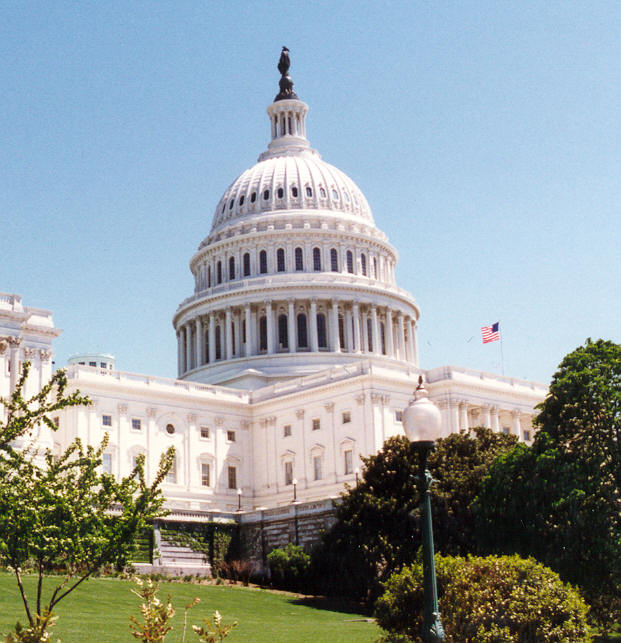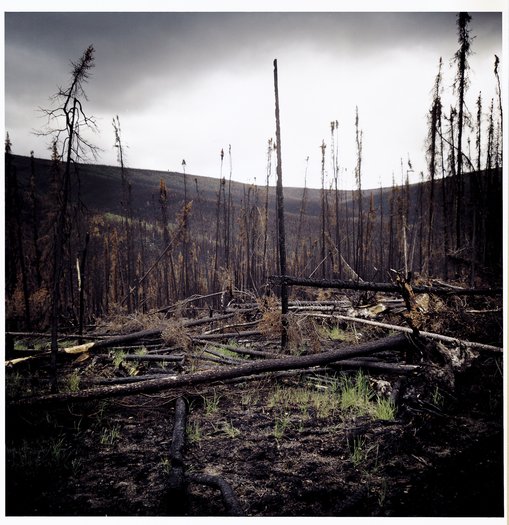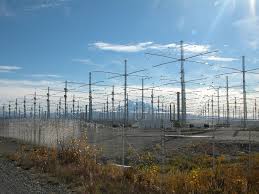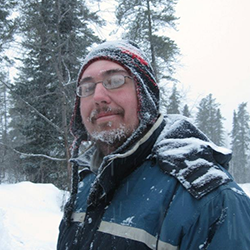|
|
|
|
|
|
|
|
Updated feature of the Arctic Update! Some servers may prevent subscribers from accessing HTML. We have added a feature to allow subscribbers to view the Update on the web instead of in their email. If you develop issues viewing this email, please click the "Click here: Having Trouble Viewing this Email?" link at the top of this email.
 Today's Congressional Action: Today's Congressional Action:
The House and Senate return from the August recess. The House and Senate are not expected to consider Arctic legislation today.
|
As Arctic Ice Melts, Oil Bonanza Yet to Arrive. The warming Arctic should already have transformed this impoverished fishing village on the coast of the Barents Sea. The Kremlin spent billions in the last decade in hopes of turning it into a northern hub of its global energy powerhouse, Gazprom. It was once the most ambitious project planned in the Arctic Ocean, but now there is little to show for it aside from a shuttered headquarters and an enormous gravel road carved out of the windblown coastline like a scar. "There are plans," said Viktor A. Turchaninov, the village's mayor, "but the facts -- the realities of life -- suggest the opposite." New York Times
 Changes in Alaska's Boreal Forest. It didn't take long this year before Alaska State Forester Chris Maisch was reminded of the record wildfire season of 2004. The snow cover melted earlier than usual this year, and with little rain or cloud cover, the sun relentlessly scorched Alaska's forests, creating especially dry conditions. Desiccated black spruce trees across the millions of acres of land that Maisch supervises were ripe for conflagration. Alaska Dispatch News Changes in Alaska's Boreal Forest. It didn't take long this year before Alaska State Forester Chris Maisch was reminded of the record wildfire season of 2004. The snow cover melted earlier than usual this year, and with little rain or cloud cover, the sun relentlessly scorched Alaska's forests, creating especially dry conditions. Desiccated black spruce trees across the millions of acres of land that Maisch supervises were ripe for conflagration. Alaska Dispatch News
President Obama's Alaska Visit Yields Little Regarding Arctic Ocean Drilling. Throughout President Obama's tour of Alaska last week, he spoke at length about efforts to reduce the nation's greenhouse gas emissions. He spoke very little about his support for Arctic Ocean drilling. The drilling policy could affect the global climate much more than any of Obama's climate-friendly initiatives. The president wrapped up his climate-change tour of Alaska in Kotzebue, just above the Arctic Circle. Alaska Public Radio
 Under New Management, Alaska's HAARP Facility Open for Business Again. Instead of falling to the dozer blade, the High Frequency Active Auroral Research Program has new life. In mid-August, U.S. Air Force General Tom Masiello shook hands with UAF's Brian Rogers and Bob McCoy, transferring the powerful upper-atmosphere research facility from the military to the university. You may have heard of HAARP. Nick Begich wrote a book about it. Jesse Ventura tried to bully his way past the Gakona gate during a TV episode of "Conspiracy Theory." Muse recorded a live album, HAARP, at Wembley Stadium from a stage filled with antennas meant to resemble those standing on a gravel pad off the Tok Cutoff Road. Alaska Dispatch News Under New Management, Alaska's HAARP Facility Open for Business Again. Instead of falling to the dozer blade, the High Frequency Active Auroral Research Program has new life. In mid-August, U.S. Air Force General Tom Masiello shook hands with UAF's Brian Rogers and Bob McCoy, transferring the powerful upper-atmosphere research facility from the military to the university. You may have heard of HAARP. Nick Begich wrote a book about it. Jesse Ventura tried to bully his way past the Gakona gate during a TV episode of "Conspiracy Theory." Muse recorded a live album, HAARP, at Wembley Stadium from a stage filled with antennas meant to resemble those standing on a gravel pad off the Tok Cutoff Road. Alaska Dispatch News
New Sanitation System Tested in Arctic Village of Kivalina. The Arctic Alaska village of Kivalina has recently found itself in the news following a visit to the state from President Barack Obama -- who used the community as an example of the impacts of climate change during a speech in Kotzebue last week -- as well as talk of a new road and a new school, and even the 'R' word: relocation. But none of those things are the primary concern for Alaska Native Tribal Health Consortium Engineering Services Director John Warren. During his many visits in the last decade to the small village on the edge of the Chukchi Sea, Warren wasn't thinking about politics, only health. And in that regard, there was no denying a problem existed. Alaska Dispatch News
 Arctic Kickstarter. Zac Hamilla, founder of the Arctic Studio (here Arctic Kickstarter. Zac Hamilla, founder of the Arctic Studio (here) has initiated a Kickstarter project ( here) titled, "The Arctic in U.S. National Identity." The project will result in a freely available research report on the nature and geography of U.S. Arctic identity and public consciousness. The Arctic Studio is a research organization focused on improving the quality of decision-making in political, economic, and security issues in the Arctic. Hamilla previously created the U.S. Navy's national Arctic intelligence analysis program and served as Principal Analyst for the Arctic at the U.S. Office of Naval Intelligence from 2009 to 2014."
[Opinion] America is Becoming the Arctic Nation the Region Needs. On Sept. 2, far above the Arctic Circle, President Obama announced a series of new investments to help Alaskans adapt to a rapidly changing environment. The president has proposed to speed up construction of heavy icebreakers by two years and work with Congress to expand the nation's fleet. In his 2016 budget, Obama requested $14 million to support the Denali Commission in coordinating federal, state, and tribal resources to implement climate change solutions across Alaska. $2 million of this will be reserved to support relocation efforts and other resilience strategies for exceptionally vulnerable communities. The Departments of Energy, of Agriculture, of Housing and Urban Development, the Environmental Protection Agency, the Federal Emergency Management Agency, the National Oceanic and Atmospheric Administration, and the State of Alaska have all pledged grant programs, initiatives, and projects to buttress the president ambitious plan. Alaska Dispatch News
|
|
Legislative Action
No Arctic legislation was formally considered Friday.
|
|
Future Events
11th Conference on Hunting and Gathering Societies (CHAGS XI), September 7-11 (Vienna, Austria). The study of hunter-gatherer societies has become, since the landmark conference "Man and Hunter" in 1966, a major topic of study within the social and human sciences community. While scholarly foci have changed during the last 50 years, the principle goal generated during the initial conference, to establish a unified field of hunter-gatherer studies, is as valid today as it was then. CHAGS XI hopes to explore how research results since 1966 and new research agendas can be applied for present and future study.
Eighth Polar Law Symposium Alaska 2015, September 23-26, 2015 (Fairbanks and Anchorage, Alaska , USA). The Eighth Polar Law Symposium is co-hosted by Alaska Pacific University (APU), the University of Alaska Fairbanks, the University of Alaska Anchorage (through its Justice Center and its Institute of Social and Economic Research), the University of Washington School of Law, and Vermont Law School, in cooperation with the Arctic Law Section of the Alaska Bar Association. The symposium will be held on both campuses of the University of Alaska. The 2015 theme is: The Science, Scholarship, and Practice of Polar Law: Strengthening Arctic Peoples and Places.
2015 Arctic Energy Summit, September 28-30, 2015 (Fairbanks, Alaska, USA). The Institute of the North's 2015 Arctic Energy Summit builds on our legacy efforts to address energy as a fundamental element of the sustainable development of the Arctic as a lasting frontier.Central to this concept is a focus on providing pathways for affordable energy development in the Arctic and for Arctic communities.
The Arctic Circle is the largest global gathering on the Arctic. It is attended by heads of state and governments, ministers, members of parliament, officials, experts, scientists, entrepreneurs, business leaders, indigenous representatives, environmentalists, students, activists, and others from the growing international community of partners and participants interested in the future of the Arctic. The Arctic Circle highlights issues and concerns, programs, policies and projects; it provides platforms for dynamic dialogue and constructive cooperation. While the plenary sessions are the responsibility of the Arctic Circle, the breakout sessions are organized by various participating partners in their own name and with full authority over the agenda and the choice of speakers.
2015 Arctic Science Conference, October 1-3, 2015 (Anchorage, Alaska, USA). The conference theme is "Healthy Estuaries: Sustainability and Resilience." Conference topics include traditional scientific disciplines, science education, arctic social sciences, biomedical research, and artistic interpretation of the evolving North. Abstract submissions are now being accepted. The deadline is August 1, 2015.
The Polar Oceans and Global Climate Change, November 3-6, 2015 (La Jolla, California USA). The American Polar Society will host this Symposium at Scripps Institution of Oceanography. A flyer with a partial list of presenters is available on the Society's website (americanpolar.org) and from the Society's Membership Chairman by email.
Forum for Arctic Modeling and Observational Synthesis Meeting, November 3-6, 2015 (Cape Cod, MA, USA). On November 3rd, the 2015 School for young scientists will consider "Regional Oceanography of the Arctic marginal seas" with lectures covering major features of atmospheric, sea ice and oceanographic regimes of the: Bering, Chukchi, Beaufort, East-Siberian, Laptev Sea, Kara, Barents and Nordic seas. On November 4-6, the meeting portion will summarize project accomplishments for the last 3 years of activities and will focus on the formulation of scientific questions and directions for FAMOS future research (2016-2019) to: (a) improve Arctic modeling, employing very high resolution models; (b) develop and test new arctic monitoring/observing systems and (c) improve predictions of Arctic environmental parameters with reduced uncertainties.
Due North: Next Generation Arctic Research & Leadership, November 5-8, 2015 (Calgary, Alberta, Canada). The Association of Canadian Universities for Northern Studies (ACUNS) will convene an interdisciplinary conference of early career scientists working on Arctic issues. Topics will include: Arctic Communities, Arctic Sustainable Development, Arctic Wildlife, Ecosystem and Biodiversity, Arctic Food Security, Arctic Landscapes, Climate Change and Adaptation, Disaster Risk Management, Policy, Politics and Leadership, Arctic Environment (Data and Techniques), Arctic Resources, and Future of Arctic.
Arctic Observing Open Science Meeting, November 17-19, 2015 (Seattle, Washington). The Arctic Observing Open Science Meeting will be 2.5 days and held at the Hyatt at Olive 8 in Seattle, Washington. The conference will bring together individuals and teams involved in the collection, processing, analysis, and use of observations in the Arctic - from academia, agencies, industry, and other organizations. The meeting will be convened as a combination of plenary talks, parallel science sessions, and a poster session. The agenda and registration information will be forthcoming.
In the Spirit of the Rovaniemi Process 2015, November 24-26, 2015 (Rovaniemi, Lapland, Finland).When the Arctic Environmental Protection Strategy, the so-called Rovaniemi Process, was adopted in 1991, it aimed at overcoming divisions and turning the zone of Cold War military tensions into a region of peace and co-operation. In this joint effort focusing on the protection of environment, and later, sustainable development, the Arctic states supported by indigenous organizations laid grounds for institutionalized collaboration and the emergence of Arctic regional identity. The second international conference will bring together decision-makers, scholars, artists, designers and students to address these questions and discuss the Arctic in global, regional and local perspectives.
Arctic Encounter Paris (AEP 2015), December 11-12, 2015 (Paris, France) (During the UN Convention on Climate Change - COP21). The Arctic Encounter Paris will take place at the French Senate at Luxembourg Palace and the French Military College, École Militaire, in Paris, France, on the final days of the monumental United Nations Convention on Climate Change (COP 21) where thousands of global citizens and government delegates will be gathered to deliberate the world's response to our changing planet in Paris. The AEP is the only Arctic policy side event current planned to take place during the UN Convention. A cocktail reception will take place following the closing panel.
3rd Annual Arctic Encounter Symposium (AES 2016), January 15-16, 2016 (Seattle, WA, USA). Building upon the preceding Arctic Encounter event in Paris, the third annual Arctic Encounter Symposium (AES) in Seattle, Washington will convene policymakers, industry leaders, and leading experts to confront the leading issues in Arctic policy, innovation, and development. As the largest annual Arctic policy event in the United States, the AES mission is to raise awareness, engage challenges, and develop solutions for the future of a region and a people. The two-day program includes two keynote luncheons, expert plenary sessions, break out sessions, a networking cocktail reception and seated dinner. A closing reception will take place at the conclusion of the program. The third annual AES at the University of Washington with a dinner reception at the Museum of History and Industry on South Lake Union, Seattle.
|
|

  
4350 N. Fairfax Drive, Suite 510
Arlington, VA 22203, USA
External links in this publication, and on the USARC's World Wide Web site ( www.arctic.gov) do not constitute endorsement by the US Arctic Research Commission of external Web sites or the information, products or services contained therein. For other than authorized activities, the USARC does not exercise any editorial control over the information you may find at these locations. These links are provided consistent with the stated purpose of this newsletter and the USARC Web site.
|
|
|
|
|
|
|
|
|